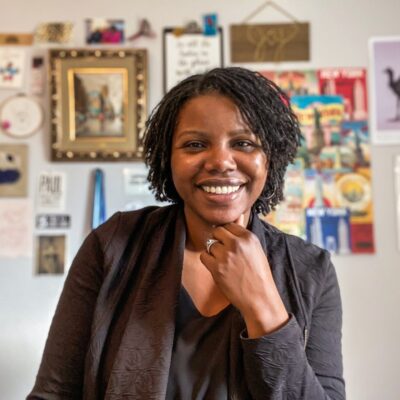When it comes to the Finger Lakes, Christopher Bates doesn’t mince words. “If we want to progress as a wine region, we need to stop growing good fruit and start growing phenomenal wine,” he said on a New York Wines panel earlier this year. Christopher is one of only 269 Master Sommeliers worldwide, and runs F.L.X. Hospitality with his wife, Isabel. The executive chef and winemaker’s portfolio of businesses includes six restaurants, a catering company, and Element Winery.
“We’ve had a very, very strong push and movement towards quality over the last 10 years,” he notes. One that has resulted in a fresh take on winemaking and revitalized an interest in the cool climate region by new winemakers and international investors alike. Most recently, the pandemic’s impact put the ingenuity of producers on display as changes to service models and digital marketing allowed most to weather these difficult times. But Christopher thinks we need to capitalize on the momentum of change. “We have the option: do we want to do this the way that we’ve always done it and that’s fine? Or do we want to step up and be the best-in-class in the world at it?”
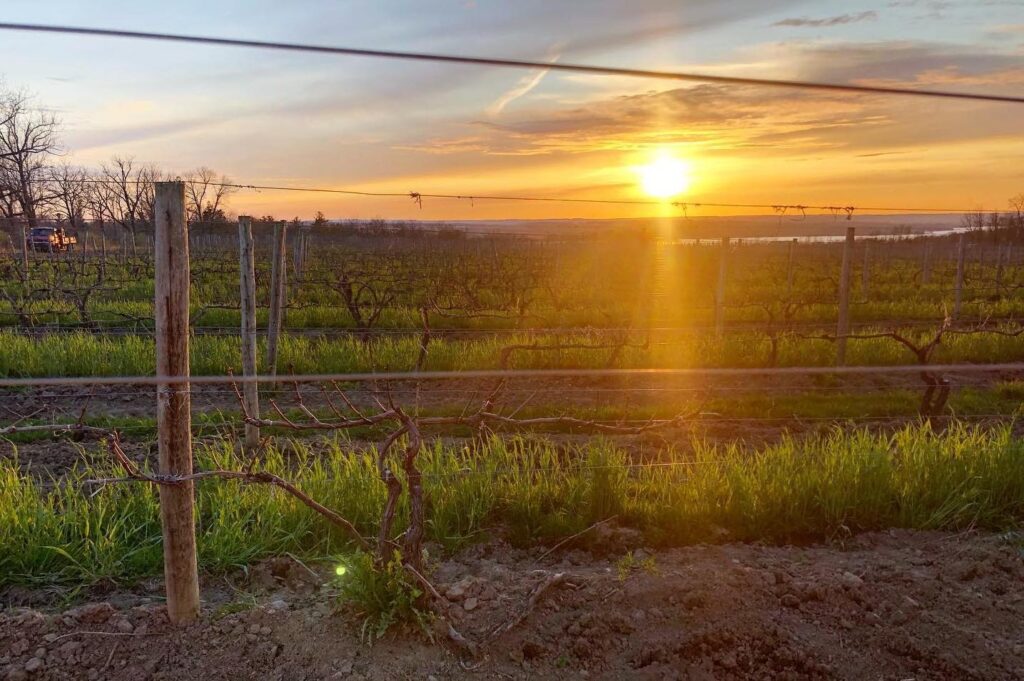
It seems new and established producers in the region are asking themselves this question. Despite a common goal towards higher quality, the steps towards growth vary by maker.
For Christopher it starts with the land and his new label, Colloquial Wines. Scheduled to launch this fall, “it’s going to be a tiny little project–all based on our 13 acres of vineyards that we’ve been nursing back to health,” he says with a smile. It’s a departure from Element, which works exclusively with local growers. With many phenomenal wines coming from some of the most challenging regions, Christopher encourages us to think broader. “There’s a ton of land here that has been deemed too rocky, or too steep, or too hard to work that has the potential to not grow good fruit, but to grow phenomenal wine. [There’s] so much that we haven’t discovered yet.”
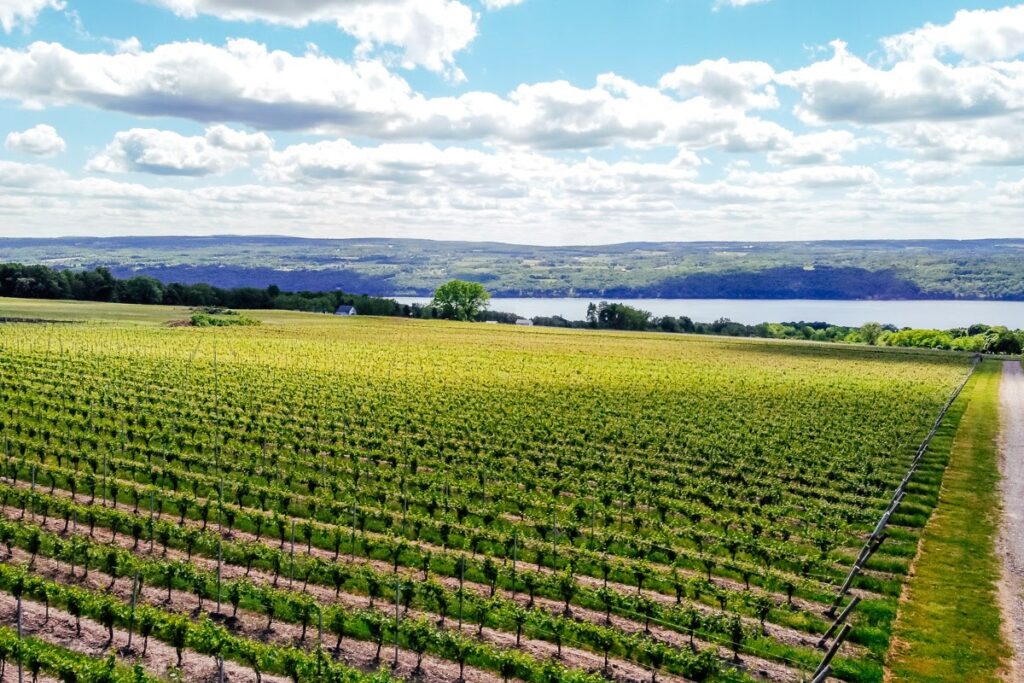
Also on the panel was Meaghan Frank, Vice President at Dr. Konstantin Frank Winery. The Keuka Lake property was developed in the name of experimentation, which remains a major part of the brand’s ethos today. Now in its fourth generation, Dr. Frank continues to push the limits of both customer experience and wine. Onsite and virtual experiences are ever-evolving with the world, and the most recent acquisition of 90 acres in Seneca Lake’s banana belt allows for expanded estate offerings. “I think there are many more AVAs in our future here in the Finger Lakes, as we learn where our best sites and soils are,” says Meaghan. (Today, only Cayuga and Seneca are recognized as official AVAs.) “I also believe we will have big-name producers knocking on our door here in the Finger Lakes from famed European regions looking to invest here because the land is inexpensive (relatively speaking) and we have a true cool climate with so much potential.”
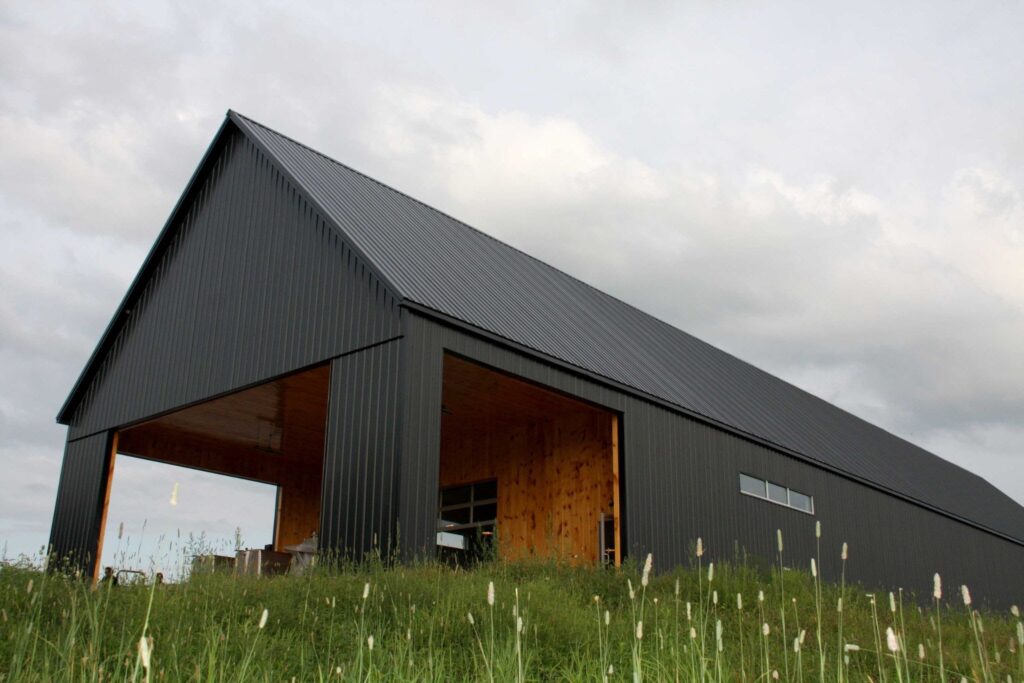
An early example is Forge Cellars, opened by partners Rick Rainey and 14th generation famed French winemaker, Louis Barruol. “Evolution is super important but there’s a lot in front of us right now that we still don’t understand,” says Rick. At Forge, Rick can work with up to 20 different vineyard sites per vintage, all managed by local growers alongside their own estate land. He suggests that small steps can be just as impactful. “Maybe the farming gets better, and gentler, and maybe we can try new things, but I don’t want to discount everything we have right in front of us at this very moment that needs exploration.”
Rick’s experience offers the sobering reminder that change requires capital, which can be challenging for local grape farmers in an industry where consumers are seeking the cheapest bottle. This is why education is imperative to Forge, and provides a layered approach to the future. Rick’s focus is giving back to the local community through growing great wine and cultivating knowledgeable (and supportive) consumers. “There’s a social component, there’s an agricultural component, there’s a tourism component,” Rick explains, “but you have to have them all working in unison because it comes undone if not.”
Just five miles north sits Seneca Lake newcomer Hillick & Hobbs, who has been laser focused on pushing the boundaries of Finger Lakes Riesling since purchasing land in 2013. With wineries spread between California, Argentina, France, Armenia, and Spain, Hillick & Hobbs is owner Paul Hobbs’ ninth label. Paul selected the property, which sits just outside of Hector Falls, due to the steep slopes and soil characteristics similar to Germany’s Mosel region.
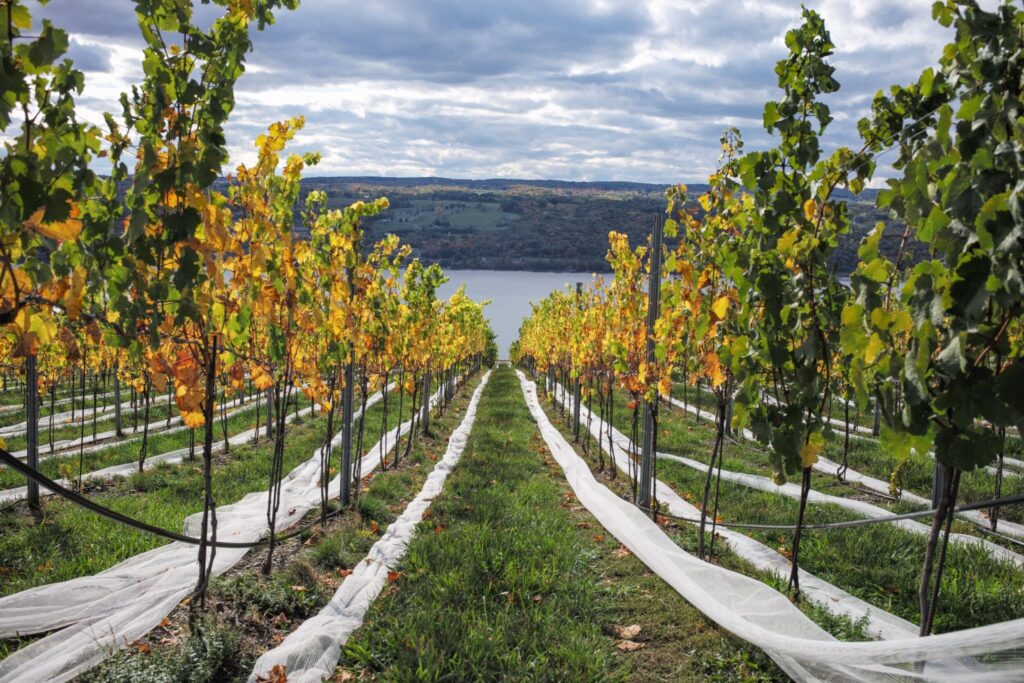
“I think it really does all start with vinicultural practices, which were pretty much just farming practices back in the 70’s” says Paul’s brother, David Hobbs, who encouraged the investment because of the immense potential. “I think all of the growers are committed to growing higher quality fruit. Everyone seems to be stepping up the game a little bit,” he notes. David manages the property and says choices like higher density plantings, lower crop yields, and a variety of clones are just the beginning of an intentional focus on quality. The winery is one of the first to plant vines east-west, allowing them to run up and down the slope as opposed to across, not unlike the Mosel. Hillick & Hobbs will eventually offer a portfolio of single vineyard Rieslings as each block begins to sing and with only 21 of 78 acres planted there’s room to play. Paul and David are still contemplating which other varieties will be planted in the future, but for now David says the uncertainty is a good thing: “That’s the beauty of it–it’s all here to create.”

